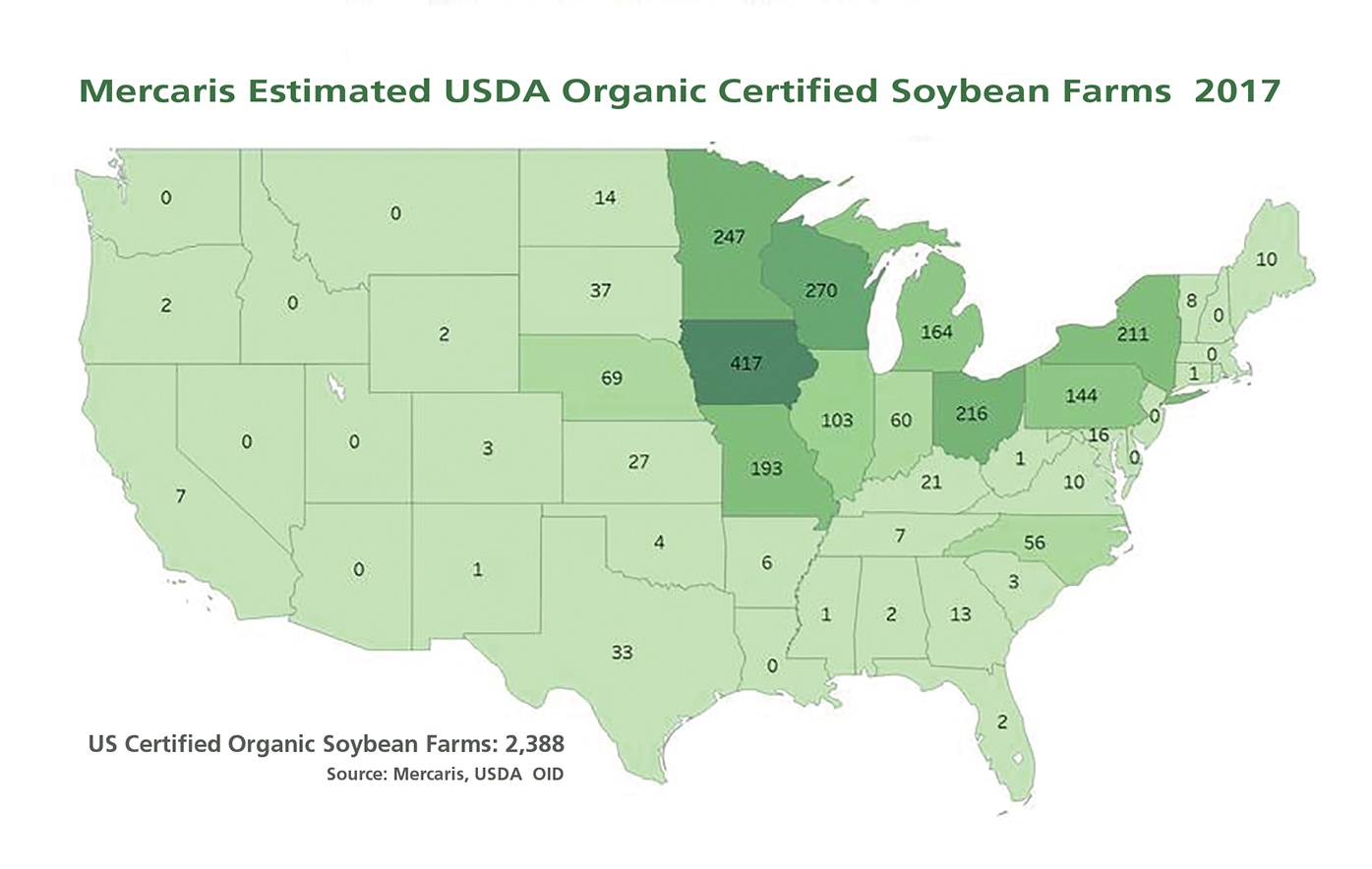By Ryan Koory and Rachel Storey, Mercaris
In 2016, data from Mercaris showed the U.S. had nearly 15,000 certified organic farms. While impressive, this year’s research suggests something even better: more than 17,000 farms across the U.S. are now certified organic, a 13 percent increase over just twelve months. Presumably due to the booming demand for organic meat and eggs, certified organic corn and soybean operations, specifically, comprise a large portion of this growth. Mercaris estimates that nearly 5,600 corn-growing operations are certified organic, up 17 percent from 2016. The growth in the number of certified organic soybean farms has been even more robust, demonstrating a 26 percent increase over 2016 figures. The map above shows the 2017 distribution of certified organic soybean farms across the U.S. Missouri alone added 80 certified organic soybean farms (a 71 percent increase), while 10 other states saw growth that surpassed 30 percent (or notably, in the case of Kentucky, 200 percent growth).
This data gives us an indication that U.S. farming operations are at least trying to keep up with the continually growing demand for organic foods (and therefore feedstuffs). While we will continue to largely depend on imports in the coming years, the U.S.’s growing ability to meet domestic demand is an important step forward for both industry and consumers. Mercaris data indicates that in the 2016/2017 marketing year, nearly 75 percent of organic soybeans were imported; however, as U.S. capacity to manage and process organic commodities is strengthened, we look forward to seeing imports edge downwards over the coming years.
We are excited by our preliminary 2017 Acreage Report findings, but stay tuned as we firm up our data and publish deeper dives into what the numbers mean. Any specific data you’d like to see? Let us know! Email us at mercaris@mercaris.com or tweet us @mercaris.









